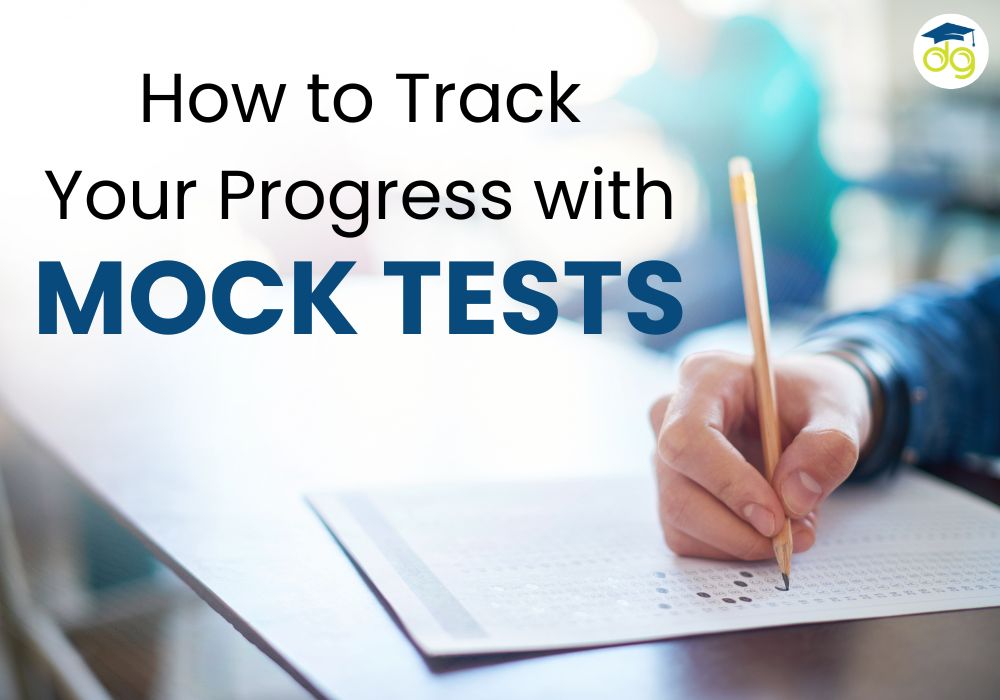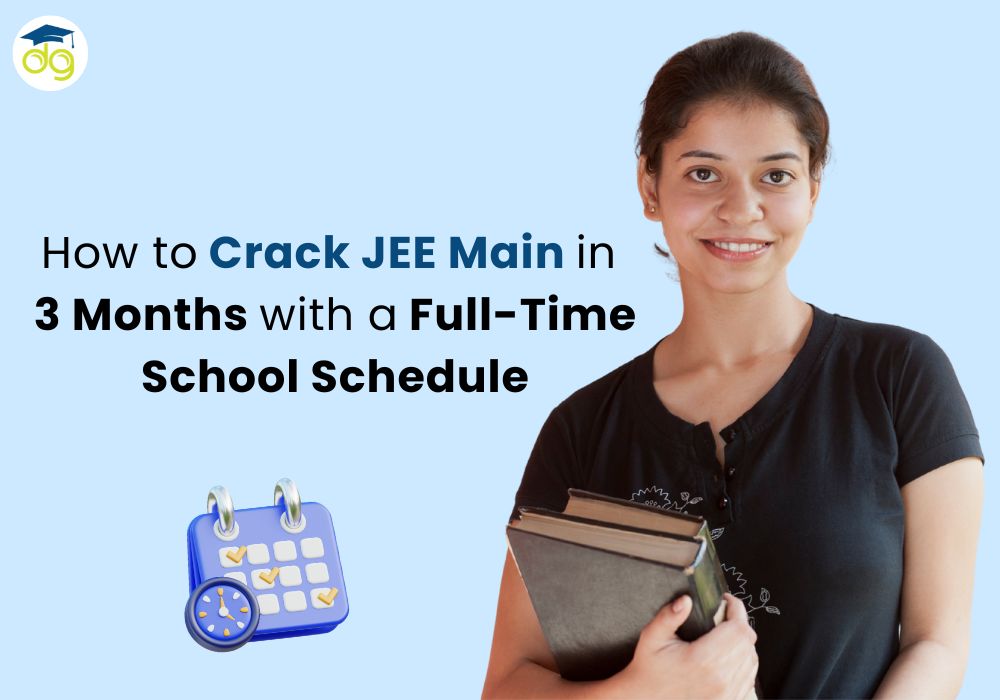Crack JEE Main in 3 Months While Attending Full-Time School
Smart study tips and daily plans to balance school and JEE preparation
JEE Main is one of the most important exams for students who want to study engineering in India. But many students also have full-time school. Managing both can feel difficult. You go to school, attend tuition, finish homework, and then you still need to study for JEE. Time feels short. Energy feels low. But with the right method, you can prepare well even in just three months.
This blog is for students preparing for JEE Main 2025. If you are running short on time or starting now, this guide will help you make the most of the next three months. You do not need to study all day. You just need to study smart.
Understanding JEE Main
Before making a study plan, it is important to understand the exam.
JEE Main Exam Pattern
- Subjects: Physics, Chemistry, Mathematics
- Type of questions: MCQs and numerical questions
- Total marks: 300
- Duration: 3 hours
- Marking: +4 for correct answers, -1 for wrong MCQs
JEE Main covers Class 11 and 12 syllabus. The level of questions is higher than school exams. You need to understand concepts and apply them quickly in questions.
Month-by-Month Plan
To prepare for JEE Main in just three months, divide your preparation into three clear phases. Each month should have a specific goal so that your study time is focused and effective.
Month 1: Build Your Base
Start with understanding and revising all important chapters. Focus on concepts from Class 11 and Class 12 that carry high weightage in the exam, such as Mechanics, Electrostatics, Organic Chemistry, Thermodynamics, and Calculus. Use NCERT books for theory and practice basic-level questions. Avoid rushing. Aim to complete at least 60% of the syllabus with good understanding by the end of this month.
Month 2: Strengthen and Practice
Now shift focus to practice. Solve chapter-wise problems and past JEE questions. Identify your weak areas and spend extra time improving them. Begin taking topic-wise and subject-wise tests. Make notes of common mistakes and revise them weekly. This is the month to increase speed and accuracy.
Month 3: Revise and Test
Use this month for full syllabus revision. Take mock tests twice a week and treat them like real exams. After each test, review every mistake and revise weak concepts. Focus more on problem-solving, time management, and confidence building. Reduce new learning and concentrate on perfecting what you already know.
Daily Time Table with School
You may not get 10–12 hours a day. That’s okay. Focus on quality, not hours. Here is a simple weekday and weekend routine:
Weekdays (with school):
- Morning (6:00–7:00 am): Revise one topic or solve 5–10 questions
- After school (5:00–6:00 pm): Study one subject (concepts)
- Evening (7:00–9:00 pm): Practice questions from that subject
Total: 3–4 hours per day
Weekends:
- Morning: Study two subjects (2 hours each)
- Afternoon: Practice test or solve full paper
- Evening: Revise weak chapters
Total: 8–10 hours per day
Subject-Wise Study Plan
Physics
Physics is concept-based. Focus on understanding. Then practice problems.
Important topics:
- Mechanics
- Electricity and Magnetism
- Modern Physics
- Waves and Thermodynamics
Books to use:
- NCERT
- HC Verma (for concepts and questions)
- Previous year papers
Tips:
- Make a formula notebook
- Solve 15–20 questions every day
- Focus on understanding, not just solving fast
Chemistry
Chemistry has three parts: Physical, Organic, and Inorganic.
Important topics:
- Physical Chemistry: Mole concept, Equilibrium, Thermodynamics
- Organic Chemistry: Reactions, Mechanisms, Nomenclature
- Inorganic Chemistry: Periodic Table, Coordination Compounds
Books to use:
- NCERT (very important, especially for Inorganic)
- OP Tandon (for Physical)
- MS Chauhan (for Organic questions)
Tips:
- Revise from NCERT regularly
- Make flashcards for Inorganic Chemistry
- Solve reaction-based questions in Organic
Mathematics
Math needs regular practice. Don’t skip it for even one day.
Important topics:
- Calculus
- Coordinate Geometry
- Algebra (Quadratic, Complex Numbers, Binomial)
- Vectors and 3D
Books to use:
- NCERT
- RD Sharma (for basics)
- Arihant series or Cengage (for practice)
Tips:
- Practice 20–25 questions daily
- Solve questions without a calculator
- Revise formulas every week
Weekly Plan Example
Day | Subject | Task |
| Monday | Physics | Learn theory, solve 10 MCQs |
| Tuesday | Chemistry | Revise NCERT, solve numericals |
| Wednesday | Math | Practice problems, revise basics |
| Thursday | Physics | Focus on weak topics |
| Friday | Chemistry | Organic Chemistry practice |
| Saturday | Math + Revision | Practice + formula revision |
| Sunday | Full Mock Test | Solve paper + analyze mistakes |
What Toppers and Teachers Recommend
Students who’ve cracked JEE Main while managing school have shared similar advice over the years. Their tips are simple, practical, and easy to follow—even if you’re short on time.
1. Focus on Understanding, Not Memorizing
Toppers often say that just reading or watching videos isn’t enough. What matters is understanding concepts clearly. After learning a topic, they try solving problems without looking at the solution. If they get stuck, they revise the concept and try again. This method works better than memorizing steps.
2. Stick to a Few Resources
Don’t switch books or jump from one YouTube teacher to another. Use NCERT as your main book, and stick to one extra book for questions. Too many resources will only confuse you. Most toppers revise the same notes many times instead of collecting new ones.
3. Take Mock Tests Seriously
Teachers often say that JEE is not just a test of knowledge, but of time and pressure. Taking mock tests in exam-like settings builds speed and reduces panic. Toppers suggest taking at least 8–10 full-length papers before the exam.
4. Get Help When You’re Stuck
If you are unable to solve a topic after two or three attempts, ask your teacher or a friend. Wasting days on one chapter only adds stress. Toppers say they never hesitate to ask questions—even if they seem small.
5. Don’t Try to Cover Everything
You don’t need 100% syllabus coverage to crack JEE Main. Focus on topics that are easy to understand and give more questions in the exam. For example, Modern Physics, Thermodynamics, and Coordinate Geometry are scoring and can be revised quickly. It’s better to master 80% of the syllabus than to barely touch 100%.
Common Mistakes to Avoid
1. Ignoring Mock Tests
Some students think mock tests are not needed. This is a mistake. Giving full tests helps with time management and builds confidence. Start giving one test every week. Increase it to two in the last month.
2. Not Reviewing Mistakes
Solving questions is not enough. You must check your mistakes. Make a notebook of errors. Write why you made the mistake and how to fix it.
3. Studying Only Theory
Many students keep reading notes again and again. But JEE Main tests your ability to solve problems. Spend more time on practice than reading.
Tips for Better Preparation
1. Study in Blocks
Use short study blocks of 45–60 minutes. Take a 5–10 minute break. Don’t sit for 3 hours straight. This helps improve focus.
2. Use Flashcards and Notes
Make your own short notes. Use flashcards for formulas, reactions, and key points. Revise these daily for 10–15 minutes.
3. Take Help When Stuck
If you don’t understand a concept, ask your teacher or friend. Don’t waste days trying to solve one topic alone.
4. Stay Consistent
Study every day. Even if it’s just 2–3 hours on busy days. Regular study is better than long study only on weekends.
Good Resources to Use
- Books: NCERT, HC Verma, OP Tandon, RD Sharma
- Websites: NTA official site for past papers
- Apps:
- NTA Abhyas App (mock tests)
- Skoodos Bridge (study plans, mock analysis, revision tracking)
- NTA Abhyas App (mock tests)
- YouTube: Use for short topic explanations, not for full-day lectures
Frequently Asked Questions
Q1: Can I crack JEE Main in 3 months?
Yes. If you stay focused and follow a smart plan, you can revise the full syllabus and improve your score in three months.
Q2: How many hours should I study every day?
Try to study 3–4 hours on school days and 8–10 hours on weekends. Make every hour count.
Q3: Should I leave hard topics?
If a topic takes too long or you keep making mistakes, it’s okay to move on. Focus on topics where you can score better.
Q4: How many mock tests should I take?
Start with one mock test per week. In the last month, take two per week. Always review your mistakes.
Q5: Is NCERT enough for JEE Main?
NCERT is a must, especially for Chemistry. But for Physics and Math, you need extra practice from reference books or question banks.
Final Advice
Three months is enough if you use your time wisely. You don’t need to study for 12 hours a day. Just study with focus and consistency. Make a plan. Stick to it. Solve questions. Revise often.
Avoid panic. Stay calm. You are not alone. Many students are in the same situation. What matters is how well you use each day from now.
If you want help with mock tests, revision planning, and performance tracking, check out Skoodos Bridge. It’s built for students like you who want to study smart, not just study more.
You can do this. Start today.
Categories
Archives
- September 202518
- August 202522
- July 202524
- June 202524
- May 202526
- April 202530
- March 202523
- February 202513
- January 202523
- December 202429
- November 20246
- September 20245
- August 202422
- July 202415
- May 20249
- June 202424
Similar Posts

MBBS Abroad vs MBBS in India: Complete Comparison for Indian Students
by Skoodos Bridge

Top 10 Countries for Indian Students to Study MBBS Abroad in 2025
by Skoodos Bridge


Balancing Coaching Classes & Self-Study: Smart Tips for Students
by Skoodos Bridge

DSSSB 2025 Teaching Exam: Latest Updates & Prep Strategy
by Skoodos Bridge


How to Revise Effectively Before Exams: Proven Tips & Study Strategies
by Skoodos Bridge

Best Memory Tricks for Learning Formulas & Facts – Study Tips 2025
by Skoodos Bridge

How to Make Effective Notes for Any Exam – Tips & Study Techniques
by Skoodos Bridge


Leave a Comment